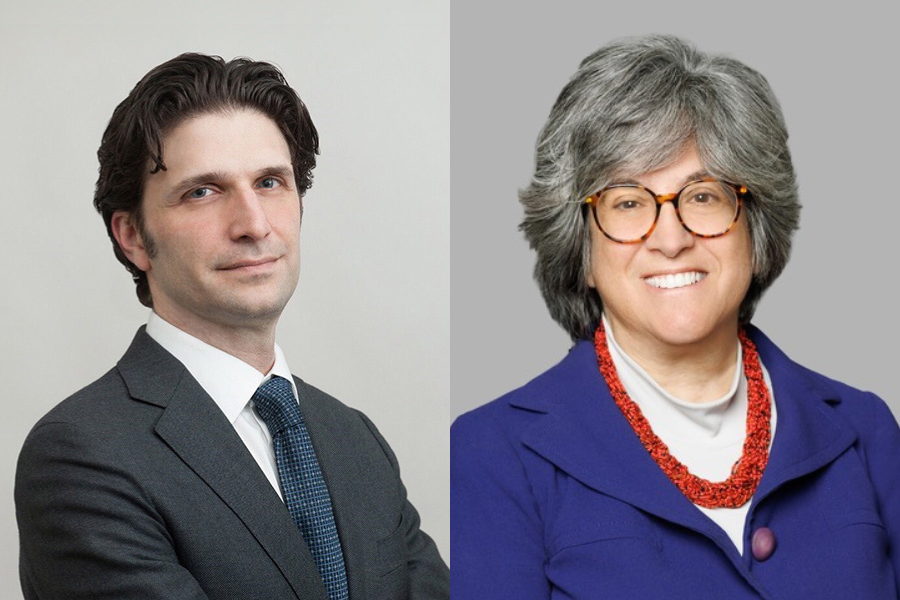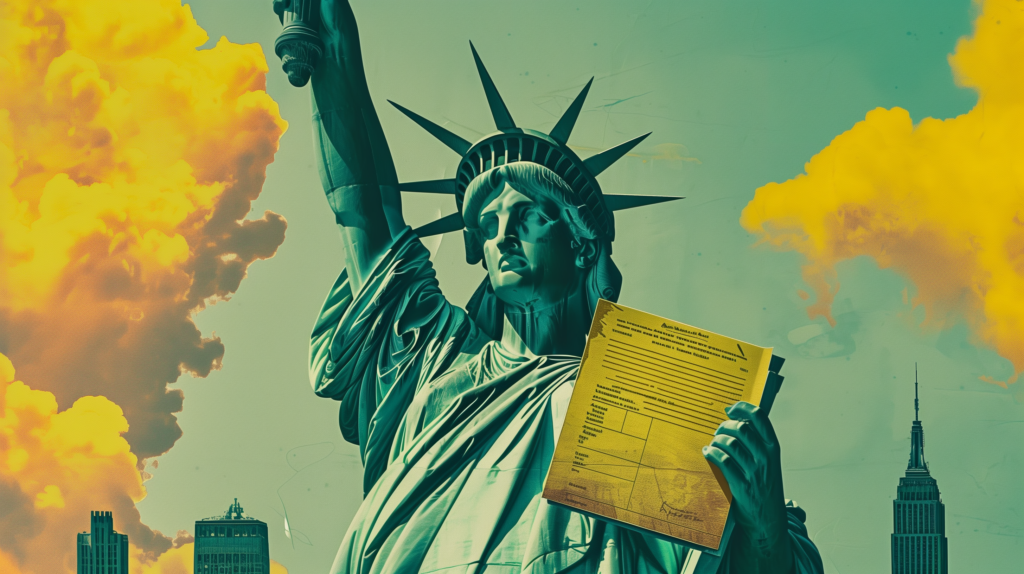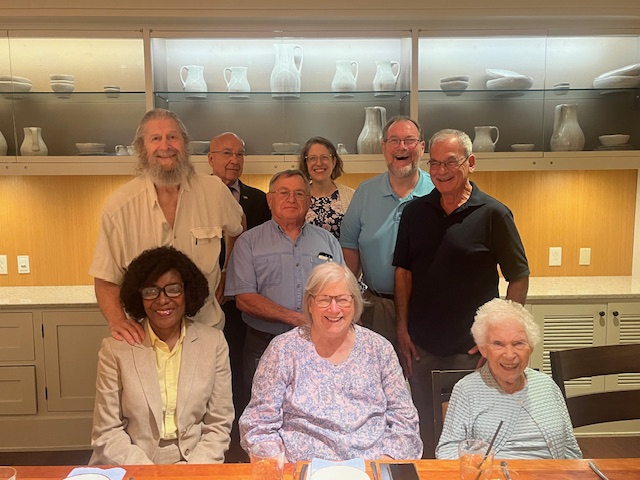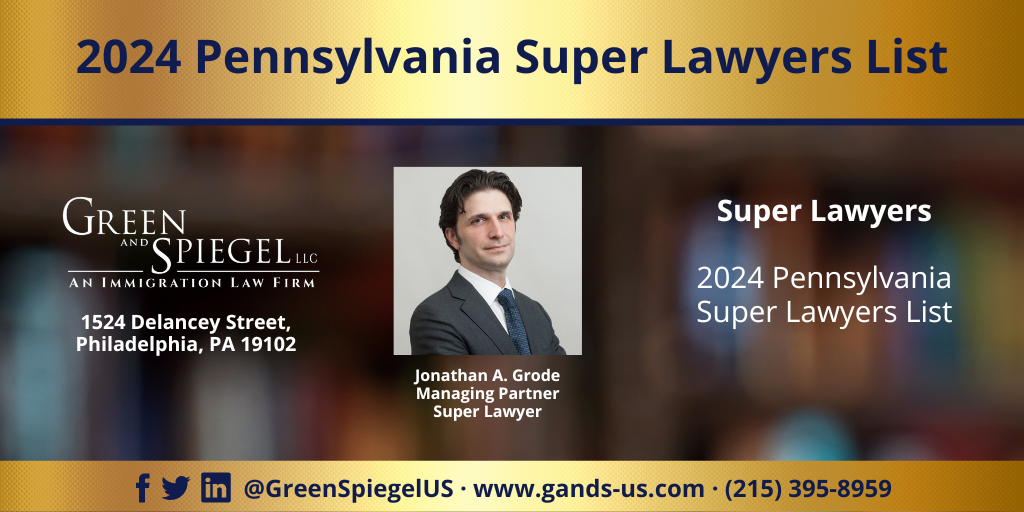Jonathan Grode, Esq., jgrode@gands-us.com
U.S. Practice Director and Managing Partner, Green and Spiegel
Amy M. Nice, Esq., amn94@cornell.edu
Distinguished Immigration Fellow and Visiting Scholar, Cornell Law School
Benders_Immigration_Bulletin_NIW article 6-1-2023
The United States has a long tradition of welcoming risk-takers and those looking for the best and fastest returns on one’s own human-capital investment. There is no workforce where these dynamics are more important than in the sciences and engineering, the workforce well-understood since World War II as fundamental to invention and technological adoption, and therefore critical to a nation’s security as well as growth in opportunity and productivity. Luckily, Congress established a specific path to green card status where the nation’s interests in this regard could be reflected in identifying individuals eligible to be classified as an immigrant: the National Interest Waiver (NIW) category for Employment-Based Second Preference (EB-2) immigrants with advanced degrees or exceptional ability.
However, until the Biden administration published guidance in 2022 in the U.S. Citizenship and Immigration Services (USCIS) Policy Manual, there had never been any detailed explanation or guidance for either adjudicators or stakeholders on how noncitizens graduating with advanced degrees in science, technology, engineering, or math (STEM) might use the NIW classification to obtain a green card.
This article summarizes (1) the significance of technology competition currently facing the United States and its connection to immigration policy, (2) the new policy guidance concerning the NIW for EB-2 immigrants holding advanced STEM degrees, and (3) the practical application of the NIW guidance.
Technology Competition and Immigration
The moment is now: we need to understand what tools we have in our toolbox under current law to facilitate green card status for STEM experts making contributions to STEM (research and development (R&D) across government, academia, and industry. In particular, companies need many more STEM advanced degree holders today because they play an expanding role in the STEM R&D eco-system, including an enhanced focus on collaboration with academia and government.
In 1953, when the National Science Foundation first started tracking the nation’s STEM R&D expenditures, the federal government funded 53.9% of the nation’s STEM R&D, with 43.5% funded by business, and 2.5% funded from other sources including nonprofit grantmaking organizations. The science and engineering indicators data from 2020 show that business now funds 73.1% of the nation’s STEM R&D, with 19.5% funded by the federal government, and 7.4% funded from other sources including nonprofit grantmaking organizations. Businesses fund and perform about 90% of all experimental development in the United States and approaching 60% of U.S. applied research. In addition, companies now fund about 32% of basic research, but do not perform most of this research, instead relying on partners in academia.
The urgency of attracting and retaining more advanced STEM degree immigrants is at least in part accentuated by the reality that technology is at the heart of strategic competition between the United States and China, a competition that many national security experts believe we can win only if we can reliably tap into the global supply of STEM talent. Indeed, China is already producing twice as many STEM master’s graduates as the United States and will soon produce twice as many STEM Ph.D. graduates as well, providing large impacts on its STEM outputs.
While an increase in the number of STEM immigrants can only come from Congress, providing more certainty and predictability to the most advanced STEM experts, whether working in industry, academia, or government, can be achieved by departments and agencies responsible for administering current law.
The National Interest Waiver and New Policy Manual Guidance
The Immigration Act of 1990 created the EB-2 sub-category of advanced-degree professionals, or individuals with exceptional ability, who might be granted a waiver of the normal requirement of a job offer and a Labor Department-approved Application for Permanent Employment Certification. As appropriate for departments and agencies implementing such legislation, legacy INS (Immigration and Naturalization Service, part of the Department of Justice) and USCIS (U.S. Citizenship and Immigration Services, part of the Department of Homeland Security) have identified the contours of the National Interest Waiver provision by promulgating notice and comment regulations and issuing precedent decisions through adjudications.
The new 2022 guidance seeks to meet the tech competition moment by identifying where existing authorities allow USCIS to create more firm footing and consistency in adjudication for certain STEM graduates and their U.S. employers. The Policy Manual update clearly states that there are specific evidentiary considerations to be considered for advanced degree holders in STEM fields and mentions that an advanced STEM degree—particularly a Ph.D.—is especially important for defining eligibility for a NIW. The policy manual goes on to specify, at Section D Part 2, that this evidentiary consideration applies to specific fields under the STEM banner that relate to a “critical and emerging technology field” as defined by the Executive Office of the President via either the National Science and Technology Council or the National Security Council.
The Executive Office of the President periodically updates its list of “Critical and Emerging Technologies”. That list currently includes nearly 20 fields (all with several subfields) of particular importance to the United States:
|
|
|
|
|
|
|
|
|
|
|
|
|
|
|
|
|
|
|
With the 2022 update, USCIS has created and identified a specific set of evidentiary considerations for advanced degree holders within certain STEM fields, clearly demonstrating that the United States is endeavoring to increase the number of these advanced degree holders within our country to fill skill gaps, drive innovation, and increase the country’s scientific and technological leadership in the global arena.
What we are witnessing is a clarification of existing binding regulations and existing controlling precedent, not to expand the scope of the NIW but to simply explain to agency adjudicators, STEM experts, and their employers how the NIW applies to advanced STEM degree holders. The “meat on the bones” provided in the new NIW guidance directs an approach to NIW adjudication that has always existed between the lines in USCIS policy, but in the past would have been considered more creative and less surefire. President Biden’s administration is using this smaller, more accessible step to make meaningful changes to the lives of advanced STEM degree holders and their employers, while encouraging full implementation of existing authorities under the governing statute—all the while working towards the national interest and goals of the government, particularly in these critical and emerging areas.
What is the Practical Application? An Immigration Attorney Brings Theory to Reality
Using the Policy Manual update as a guide, one co-author, Jonathan Grode, who is in private practice, started submitting cases using an approach to national interest waivers directed by the careful wording of the new Policy Manual update. In the past, most experienced practitioners always approached the National Interest Waiver category with a similar level of detail and vigor as that for an Employment-Based First Preference Extraordinary Ability (EB-1A) petition by using extensive evidence, lengthy letters of support from experts, and complex explanations about the foreign national’s work. Recently enhanced by the ability to premium process NIW petitions, it was reasonable to interpret the updated policy manual guidance as an invitation to submit NIWs for foreign nationals with Ph.Ds in STEM fields listed on the critical and emerging technologies list using a more succinct petition process. But to test the limits of how important an advanced STEM degree could be, it was desirable to identify parameters of test cases–-a “clinical trial” of immigration law. By asking client colleagues and law firm staff, several qualified candidates were identified—all with STEM Ph.Ds—who were willing to take a chance, and NIW petitions were filed at the Texas Service Center and Nebraska Service Center.
Ultimately, each of these test cases for STEM Ph.Ds were approved promptly, within 60 days before premium processing and within 2 weeks after premium processing, and without requests for evidence. Each test case included only the following supporting materials:
- A brief, 1.5-page legal argument referencing the list of critical and emerging technologies and the relevance of the foreign national’s related STEM Ph.D.;
- A letter of support signed by the employer or a personal statement signed by the self-petitioning foreign national;
- A copy of the foreign national’s Curriculum Vitae;
- A copy of the Policy Manual guidance and the Critical and Emerging Technologies list; and
- A copy of the advanced degree(s) earned by the foreign national.
As new challenges evolve for business immigration, such as record low selection rates from the H-1B lottery and nationwide layoffs in major industries, there has been increased interest in self-sponsored, employment-based green cards. With this new NIW policy explanation, some highly-educated and accomplished foreign nationals in STEM fields have a quick and relatively hassle-free option to secure their own futures in the United States.
Although this first “clinical trial” prioritized NIW candidates with Ph.Ds, we see room to push this methodology further, to areas vital to the national interest where engineers play a critical role but where the terminal degree is at the master’s level. For example, one of the fields on the Critical and Emerging Technologies List, Autonomous Systems and Robotics, represents some of the most promising solutions to major challenges facing our global supply chain, national security, energy production, public health and safety, and more. That said, many individuals leading those innovations are engineers, who commonly do not pursue doctoral degrees, opting instead to earn a master’s degree and then work in industry.
Further, the policy update specifically references other objective measures of when an endeavor is the national interest beyond the Critical and Emerging Technologies List, such as when the endeavor is in R&D intensive industry, when it is a priority identified annually by the OMB and OSTP Directors in the President’s budget, or when an interested federal agency confirms its national importance. Although the policy update specifically reiterates the value of a Ph.D. in the context of a national interest waiver, the guidance also recognizes that STEM master’s degree holders might qualify in certain situations. Exploration should follow as to the extent to which USCIS will make similar considerations for individuals with master’s degrees who are similarly well-positioned to advance endeavors that have significant merit and national importance as evidenced by the Critical and Emerging Technologies List.
Conclusion and Next Steps
This National Interest Waiver approach is one tool in an immigration lawyer’s toolbox. It should not be overlooked but is not a panacea and should not be treated as such. Indian nationals still face severe retrogression for second preference priority dates, so the State Department’s Visa Bulletin remains an important factor in all green card processes. Moreover, the NIW is only open for professionals with graduate degrees (or individuals who can document exceptional ability) who are poised to advance certain, particularly important endeavors. In addition, as with all immigration adjudications, there is some level of subjectivity and discretion and therefore always a possibility for inconsistent decisions that can baffle even the most seasoned of practitioners, even when there is new Policy Manual guidance that attempts to flesh out details and examples.
Previously, this approach may have been considered creative. Now, we expect that the trend toward favoring foreign nationals with advanced STEM degrees will become a clear path to green card eligibility for many of the brightest graduates in these ever-evolving critical and emerging fields.
Achieving green card status, however, will continue to be subject to long wait times for visa availability for many of the STEM experts that qualify for NIW eligibility until Congress acts to create separate immigrant visa numbers for advanced STEM degree holders. Moreover, the Policy Manual update on NIW remains only a guidance document – in this case guidance interpreting a binding precedent, which creates some longevity, but guidance that can become irrelevant in an administration that works to develop a new binding precedent case on NIW that perhaps reflects less support for driving importance of new technologies and the diverse body of researchers working on these innovations. If the Policy Manual’s updates and implications on NIW were codified in notice and comment rulemaking, this would be ideal to ensure it remains standing policy.
The National Interest Waiver Policy Manual update is an integral part of recent international STEM talent initiatives designed specifically to support U.S. economic and national security interests, which will continue to rely more and more upon emerging technologies. These initiatives provide a framework for specifically considering certain immigration applications and petitions in the context of the growing need for STEM talent, providing STEM experts and their employers and counsel with clear, citable guidance. More employers and their counsel should test the viability of the NIW policy and offer the option to qualified advanced degree holders, while monitoring USCIS backlogs and the Visa Bulletin to continue making informed and strategic decisions for each case.




